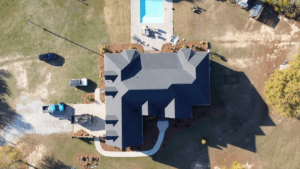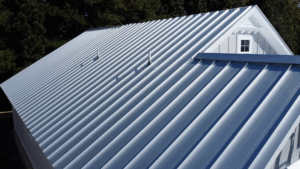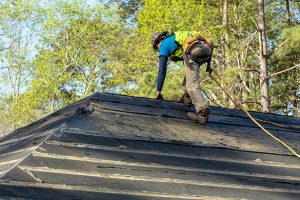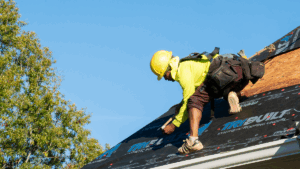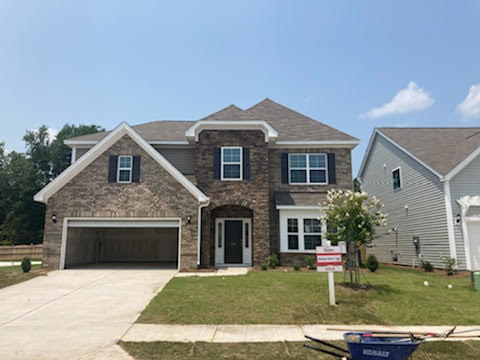
Your Complete Guide to Asphalt Shingle Roofing Systems
Did you know that asphalt shingles are the most widely used roofing material in Northern America? Asphalt shingles account for more than 80% of all residential roofs across the country. There are different reasons why these material type has become so popular for not just Americans but also for homeowners worldwide.

For one, asphalt shingles provide ample protection in adverse weather conditions, with their surface preventing water penetration. They are also versatile in terms of design, as they can mimic the looks of other materials such as slate and tiles. Asphalt shingles are available in a multitude of colors, textures, thickness and are among the most flexible roofing materials for any replacement job. Most importantly, they are more affordable than most materials, making them an ideal option for homeowners on a budget.
In this roofing spotlight guide, International Construction Services, Inc., the leading provider of roofing in North Augusta, SC, and the nearby areas, discusses everything you need to know about asphalt shingle roofs.
What Are Asphalt Shingles Made Of?
Asphalt shingles get their name from the asphalt used to waterproof shingles. All asphalt shingles are composed of three key layers: the matting, ceramic granules, and algae resistance minerals.
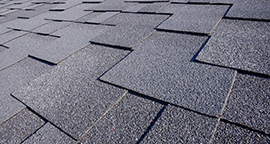
Asphalt-coated fiberglass mat serves as their foundation, enabling the shingles to remain flexible even in extreme temperatures. This way, they don’t get brittle easily and water is prevented from penetrating the material. The top coating of asphalt shingles is embedded with ceramic granules, which protect the asphalt’s coating system from premature deterioration and fading caused by harmful ultraviolet rays of the sun. Algae resistance granules are also included to control the growth of algae, which may lead to unsightly discoloration.
Different Types of Asphalt Shingles
Asphalt shingles come in three main designs: Three-tab shingles (also referred to as 3-tab shingles), architectural shingles, and premium or designer shingles. Let’s take a closer look at each of these shingle types.
- Three-tab shingles – When you imagine traditional asphalt shingles, a three-tab shingle roofing type may come to mind. Known for their basic rectangular shape and offset layout, three-tab shingles were the most used roofing shingle until architectural shingles were introduced in the 1970s. While three-tab shingles are the most affordable among other asphalt shingle types, they are considered a good shingle choice. If one of your primary concerns when replacing your roof is budget, then three-tab shingles offer an economical alternative to architectural shingles.
- Architectural shingles – Most American homes today use architectural asphalt shingles for their roofing systems. Architectural shingles, also known as dimensional or laminated shingles, are manufactured in a wide array of styles and color options. Architectural shingles are generally stronger and more durable than their three-tab counterpart when it comes to wind resistance. Most of them also come with longer warranties. Homeowners choose architectural shingles because they look great and can replicate several other styles of roof coverings, like wood shake, tile, or slate, while saving cost for materials and workmanship.
- Premium shingles – Also referred to as designer shingles, premium shingles are the most expensive option among other asphalt shingle types. They are more sophisticated and luxurious in terms of design, as characterized by their deep, shadow lines that accentuate the entire roofing system where they are installed. They are also incredibly durable, and, if installed and maintained properly, can last for up to 40 years.
Aside from these three main types, asphalt shingles also come in two varieties: fiberglass and organic.
Fiberglass shingles are made of a woven fiberglass base mat, covered with a waterproof coating, and topped with ceramic granules to protect from harsh UV rays. Because of their composition, less asphalt is needed to give the shingles their durability and strength. As a result, they are thinner and lighter in weight compared with organic shingles. Fiberglass shingles also have a higher fire rating than their organic counterpart and generally carry a longer warranty.
Organic mat-based shingles, on the other hand, are made from a recycled layer of felt paper, asphalt-saturated materials for waterproofing, and adhesive asphalt for the ceramic granules to cling onto. Organic shingles have approximately 40% more asphalt than fiberglass shingles, making them heavier, thicker, and more costly.
Styles and Colors for Asphalt Shingles
When installed properly, asphalt shingles can be hard to differentiate from other roofing materials. Why? Some are made to convincingly imitate the appearance of slate, wood shakes, or even tile. And shingle shapes can be closely varied; think about the scalloped-edge tabs that suit Victorian architecture or the square, slate-like shingles that complement Colonial homes.
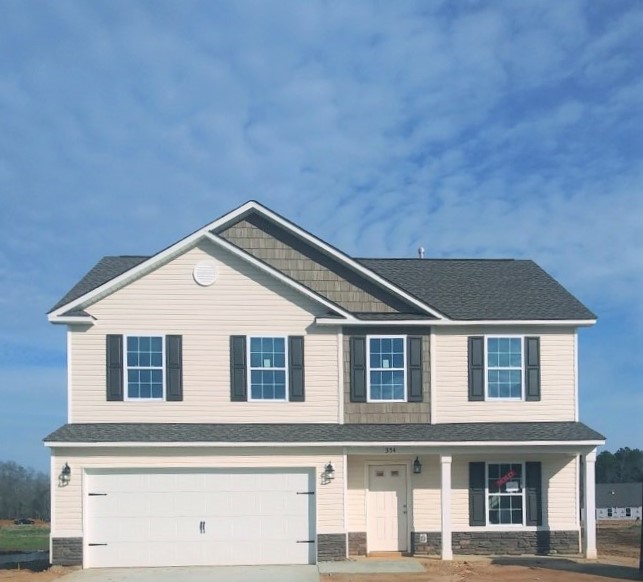
Homeowners also have a mirage of color choices, depending on your personal preference and the style of your home. In general, you’ll be able to find tones thay range from pale gray, medium gray and dark gray to beige, reddish and medium brown to dark brown, in addition to shades of blue and green. There are also variegated looks achieved by combining light and dark tones tastefully, as well as weathered looks designed to transform a new roof into something that matches a vintage-style home. If you’re having trouble picking out the right styles and colors, you can always seek the help of re-roofing experts or use interactive tools online that can help you “try on” different colors and styles to find the asphalt shingle best suited to your home.
The Most Underrated Benefits of Asphalt Shingle Roofing
Asphalt shingles are the most popular roofing materials for a reason. If you’re on the fence about installing an asphalt shingle roof when the time comes to replace your old system, then you might consider it after you’ve learned about its most significant advantages:
- Cost-effectiveness. All roofing experts and roofing contractors would agree that asphalt shingles are the most economical and cost-effective roofing material on the market today. Installing an asphalt shingle roof means you get a durable, efficient roof at an affordable price. Some homeowners doubt its overall performance due to its affordability, but this roofing type deserves a spot on your options. While it may not cost you a leg and an arm, an asphalt shingle roof still lasts for a long time, giving you value for your money. It’s also wind, weather, and fire-resistant, keeping your home safe amid inclement weather conditions.
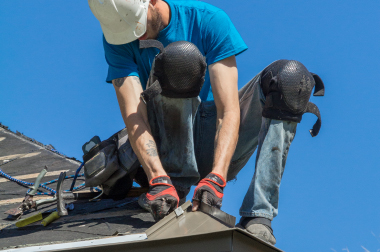
Environmental-friendliness. Still thinking if you should consider an asphalt shingle roof for your upgrade? If so, its eco-friendly nature should convince you. Asphalt shingles don’t have a lasting negative impact on the environment, which is common among other roofing materials. Years ago, roofing companies and manufacturers would often throw shingles into a minefield when they are no longer useable. Today, however, asphalt shingles can be recycled and used again. After your roofer removes broken asphalt shingles from your roofing system, they gather and recycle the material, and then use them for other products. For example, some professionals use recycled asphalt shingles to rebuild pavements or repair roads. In fact, according to the Asphalt Roofing Manufacturers Association (ARMA), recycled asphalt shingles are capable of improving the quality and aesthetics of roads.
- Energy efficiency. Most people overlook the energy efficiency that asphalt shingle roofs provide. It may come as a surprise to know that an asphalt shingle roof can boost a home’s energy efficiency levels, particularly if it is newly installed with quality underlayment. The materials used in the production of asphalt shingles help reflect most of the solar heat that hits your roof, thus decreasing your roof’s surface temperature. And shis is true for all types of asphalt shingles, regardless of whether you install the light, medium, or darker tones — they will have the same solar reflection capabilities. When your roof is less heated, minimal heat will seep into your home during warm months. Therefore, your HVAC unit won’t need to work extra hard and use more energy to regulate the temperatures in your living spaces. As a result, you’ll gain significant savings on your home’s overall energy costs.
- Weather protection. Most asphalt shingles are engineered to survive extreme weather elements and conditions. If you live in an area prone to hail, strong winds, and harsh storms, consider impact-resistant asphalt shingles. Ask your roofing contractor about Class 4 Impact-resistant shingles, and you’ll be amazed at how impressive they are at protecting your house against severe conditions. Note, however, that is not a complete guarantee that your roof is 100% impact-resistant, although it can significantly help you minimize your insurance premiums. If you have a problem with high winds, many asphalt shingle types can be used to combat it. Most roofing manufacturers today pass shingles through harsh wind-resistant tests to make sure they will perform at their best when faced with high winds. If your asphalt shingles are installed correctly, they will last you for many years and even stay put throughout harsh seasons.
Key Components Of An Asphalt Shingle Roof
Investing in new asphalt shingle roofing doesn’t only transform the look of your home; it also protects your family and your valuables from the elements associated with the local climate. Asphalt shingle roofs do this through their multiple components that complement one another, making the sum of all parts greater than the whole.
With all of these roofing parts functioning together, you get a complete roofing system that is both durable and long-lasting. Here’s a quick guide to the key components of asphalt shingle roofs.
- Asphalt shingles – Asphalt shingles make up the primary covering of asphalt shingle roofs. They are responsible for shedding water off the surface, protecting your interior from strong winds, heavy downpours, and intense heat. As discussed earlier, they come in numerous styles, profiles, colors, and textures.
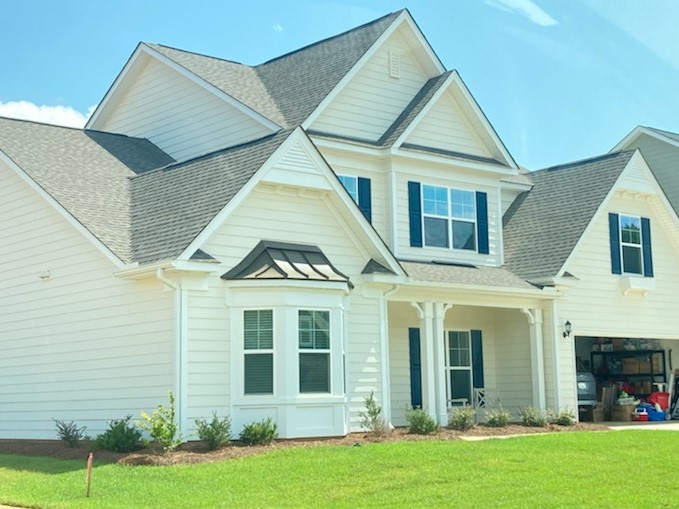
Underlayment – This can be found underneath the shingles. The underlayment acts as the secondary barrier to keep the wood decking or sheathing safe from the damaging effects of moisture, such as mold and rot. When you get professional roofing services to repair your system, the pros will make sure the underlayment is intact before completely replacing the missing or broken shingles.
- Ice and water barrier – This type of barrier is almost similar to the underlayment, although it plays a crucial role in protecting vulnerable areas of the roof from water damage. With an ice and water barrier, you won’t have to worry about severe leaks during rainstorms and ice dams during winter.
- Starter strip shingles – Unlike regular asphalt shingles, starter strip shingles are long and narrow in shape. They are placed on the roof’s edges before the first set of asphalt shingles — the ones you see on top of homes — can be installed. Professional roofers install quality starter strip shingles to prevent shingle blow-offs or water infiltration.
- Hip and ridge cap shingles – Hip and ridge cap shingles are as satisfyingly attractive as they are functional. They add a finishing touch to the roof’s overall aesthetics. Placed directly on top of the hip and ridge parts of the roof, they are available a high-profile design that makes them thicker than the shingles placed on the roof’s slopes.
- Roof vents – A well-functioning ventilation system is vital for asphalt shingle roof. This component has intake and exhaust vents to let fresh air in and heave moist, stale air out of the attic. Without these roof vents, mold and mildew may develop due to the presence of moisture. During summer, heat can get trapped inside the attic, encouraging premature deterioration of the asphalt shingles.
Understanding Asphalt Shingle Roof Warranties
No matter which type, style, or color you choose, you’ll want your asphalt shingle roofing investment to include an extensive warranty. It’s important to take note, however, that DIY-installed shingles may not be covered and that warranty coverage can be voided if the manufacturer deems its product improperly installed. While an experienced DIYer can install roof shingles, choosing not to hire a licensed and fully insured contractor may result in risks that are more than just physical.
Most warranties mainly cover defects, such as curling or buckling shingles, granule loss, and thermal splitting. Study the proffered warranty before making a purchase decision. Make sure you understand that your warranty may not include the cost of labor for repairs or replacements. Additionally, warranty types don’t often cover the effects caused by Mother Nature, including earthquakes, hurricanes, tornadoes, high winds, or hail storms. Lastly, if you put your home up on sale during the warranty period, the coverage will likely end.
FAQs About Asphalt Shingle Roofs
Are you feeling overwhelmed about the infinite options and questions when it comes to installing asphalt shingle roofing? You’re not alone. That’s why we’ve compiled the most common question that frustrated homeowners ask but can’t find answers to.
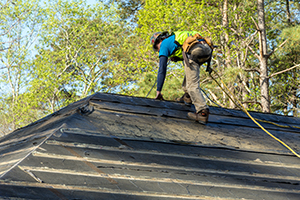
How Long Do Asphalt Shingle Roofs Really Last?
There is no definite answer to this, but the common range is between 15 to 40 years. Note that a number of factors can directly impact the service life of asphalt shingle roofs, such as weather, roof pitch, quality of installation, and of course the quality of shingles. Here in the South Atlantic region, where we do not have excessive issues with ice dams, algae, and spiking temperatures that other regions do, you can expect your asphalt shingles to reach the upper end of whatever lifespan the manufacturer promises for them.
What Are the Signs That My Shingles Need to be Replaced?
A lot of asphalt shingle problems start small. If the homeowner doesn’t schedule regular inspections and repairs, they will likely discover any problem when it is already huge and extensive. This isn’t ideal, especially if you are trying to save money on significant home repairs.
If you notice any of these issues mentioned below, be sure to contact a professional roofing contractor right away so they can examine your system and recommend the best course of action.
- One or multiple missing shingles
- Shingles have lost their shape and seem lifted
- Asphalt granules in gutters
- Curled, buckled or cracked shingles
- Sagging gutters
- Dislodged shingles or flashings
- Water stains on the ceiling
- High temperatures in the attic
- Presence of mold and mildew
How Much is a New Asphalt Shingle Roof Going to Cost Me?
Asphalt shingle roofs are very cost-effective for two primary reasons. First of all, the shingles themselves are cheaper in price than other materials, averaging about $0.80 to $1.20 per square foot. Secondly, asphalt shingles are extremely easy to install, helping you keep your labor costs low. So long as your roof deck is in good condition and you currently only have one layer of shingles on it, your new shingles can be applied directly over your old ones for an even faster and more affordable job.
How Do You Match Asphalt Shingles to House Color?
Some asphalt shingle manufacturers provide homeowners with “online roof visualizers”, allowing you to see shingle color options combined with house colors even before you install your new roof. With these tools, you can easily view shingle colors on various types of houses, or upload a photo of your own home to see what the shingles might look like on your home. Some of the most popular roof visualizers are the GAF Virtual Home Remodeler and Owens Corning DESIGNEyeQ.
If you’re in the market for a new roof and you’re considering using asphalt shingles, or any other roofing material for that matter, then give International Construction Services, Inc. a call! We’ll be ready to provide you with free roofing estimates. Simply call us at (803) 699-5106 or fill out our form to get started.


